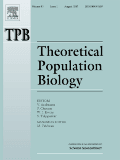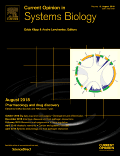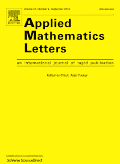
BULLETIN OF MATHEMATICAL BIOLOGY
metrics 2024
Exploring the Mathematical Foundations of Life
Introduction
Bulletin of Mathematical Biology, published by Springer, is a premier journal dedicated to advancing the field of mathematical biology. With an ISSN of 0092-8240 and an E-ISSN of 1522-9602, this journal has been at the forefront of interdisciplinary research since its inception in 1973, continuing to deliver high-quality contributions through 2024. Operating without an open-access model, the journal maintains robust academic rigor, reflected in its category quartiles for 2023, which positions it in Q1 and Q2 across several relevant fields, including Agricultural and Biological Sciences, Biochemistry, Genetics, and Mathematics, among others. Its impressive Scopus ranks further underscore its significance, placing it in the top tier of journals in general mathematics and agricultural sciences. Researchers, professionals, and students looking to deepen their understanding and contribute to the evolving landscape of mathematical biology will find this journal an essential resource for contemporary studies and advancements in the field.
Metrics 2024
 0.61
0.61 2.00
2.00 2.10
2.10 97
97Metrics History
Rank 2024
Scopus
IF (Web Of Science)
JCI (Web Of Science)
Quartile History
Similar Journals

International Journal of Biomathematics
Advancing Quantitative Insights in Biological SystemsInternational Journal of Biomathematics is a premier scholarly publication dedicated to the intersection of mathematics and biological sciences. Published by World Scientific Publishing Co Pte Ltd in Singapore, this journal serves as a vital resource for researchers and practitioners seeking to explore the quantitative modeling of biological systems. Recognized for its significant contributions to Applied Mathematics and Modeling and Simulation, it achieved a commendable Q2 ranking in both categories in 2023, reflecting its impact within the academic community. The journal, with ISSN 1793-5245 and E-ISSN 1793-7159, promotes open access to facilitate the dissemination of knowledge and encourages submissions that advance the theoretical and practical applications of biomathematics. With a commitment to fostering interdisciplinary collaboration, the International Journal of Biomathematics plays an essential role in shaping the future of research in mathematical biology.

ACTA BIOTHEORETICA
Connecting Agricultural Sciences, Mathematics, and PhilosophyACTA BIOTHEORETICA is a distinguished academic journal published by Springer, offering a vital platform for the dissemination of research within various interdisciplinary fields including Agricultural and Biological Sciences, Applied Mathematics, Biochemistry, Genetics and Molecular Biology, Environmental Science, and Philosophy. The journal, with its extensive history since its inception in 1935, holds a significant impact factor within its respective categories, ranking Q2 in Agricultural and Biological Sciences and Q1 in Philosophy as of 2023. Its archives, spanning from historical publications to contemporary studies, serve as a rich repository for scholars, professionals, and students dedicated to advancing knowledge in these areas. ACTA BIOTHEORETICA invites contributions that push the boundaries of theoretical exploration and practical application, with the aim of fostering an understanding that bridges science and philosophy. Although not open access, the journal maintains wide accessibility through its integrated digital platforms, enhancing the reach and impact of published work worldwide. Its central office located in Dordrecht, Netherlands further accentuates its international appeal and significance.

Kinetic and Related Models
Advancing the Frontiers of Kinetic Theory and ModelingKinetic and Related Models, published by the American Institute of Mathematical Sciences (AIMS), is a distinguished journal that focuses on innovative research in the realms of kinetic theory, modeling, and numerical analysis. With an ISSN of 1937-5093 and an E-ISSN of 1937-5077, this journal offers critical insights and advances in mathematical sciences, making significant contributions to both theoretical and practical applications in these fields. As of 2023, it holds a respectable Q2 category ranking in both Modeling and Simulation and Numerical Analysis, reflecting its impact and relevance in the academic community, with Scopus ranks positioning it favorably among its peers. Although it operates through a subscription model, the journal is key for researchers aiming to remain at the forefront of mathematical modeling methodologies and numerical techniques. Established to serve the academic community since 2010, Kinetic and Related Models fosters interdisciplinary collaboration, catering not only to scholars but also to professionals and students looking to deepen their understanding and application of kinetic models in various recent contexts.

npj Systems Biology and Applications
Unveiling New Dimensions in Biological Systemsnpj Systems Biology and Applications, published by NATURE PORTFOLIO, is a premier open-access journal that has been at the forefront of the field since its inception in 2015. With a commendable focus on the interdisciplinary integration of applied mathematics, biochemistry, computer science, and drug discovery, the journal currently enjoys a Q1 ranking across multiple categories, showcasing its significant impact within the scientific community. In 2023, it ranked 70 out of 635 in Applied Mathematics and holds a notable place in the 89th percentile, confirming its esteemed reputation among researchers. Situated in the United Kingdom, this journal not only promotes innovative research in systems biology but also serves as an essential platform for the dissemination of high-quality studies that delve into modeling, simulation, and the application of biological systems in drug discovery processes. With an open-access model, authors can reach a broad audience, enhancing collaborations and advancing knowledge across disciplines, making it an indispensable resource for researchers, professionals, and students alike seeking to contribute to the evolving landscape of systems biology.

ZEITSCHRIFT FUR ANGEWANDTE MATHEMATIK UND PHYSIK
Fostering Collaboration Across Mathematical and Physical SciencesZEITSCHRIFT FUR ANGEWANDTE MATHEMATIK UND PHYSIK, published by Springer International Publishing AG, is a leading journal in the fields of applied mathematics and physics, highly regarded as evidenced by its prestigious Q1 rankings in 2023 across multiple categories, including Applied Mathematics, Mathematics (miscellaneous), and Physics and Astronomy (miscellaneous). With an ISSN of 0044-2275 and an E-ISSN of 1420-9039, this journal covers a broad spectrum of research from theoretical frameworks to practical applications, making it an indispensable resource for researchers, professionals, and students alike. With converged years running from 1950 to 2024, it offers a rich history of contributions to the scientific community and remains vital for current advancements in mathematics and physics. While not an open-access journal, its subscription model ensures high-quality, peer-reviewed content that fosters innovation and collaboration across disciplines. The journal is conveniently located in Cham, Switzerland, providing a central hub for global research dissemination in these critical areas of study.

THEORETICAL POPULATION BIOLOGY
Pioneering Theoretical Approaches in BiologyTHEORETICAL POPULATION BIOLOGY is a leading academic journal published by Academic Press Inc. Elsevier Science, dedicated to advancing the understanding of population biology through theoretical frameworks and models. With an ISSN of 0040-5809 and an E-ISSN of 1096-0325, this journal has been a cornerstone in its field since its inception in 1970. Recognized for its significant contributions to the study of ecological and evolutionary dynamics, it currently holds a Q2 ranking in the Ecology, Evolution, Behavior and Systematics category as per the 2023 category quartiles. Researchers and professionals alike appreciate its role in disseminating impactful findings, as reflected in its percentile ranking of the 51st in Scopus for the Agricultural and Biological Sciences field. While the journal is not open access, it remains a vital resource for those looking to deepen their knowledge and research in theoretical approaches to population biology, making it an essential read for students, aspiring scientists, and veteran researchers seeking to engage with cutting-edge theoretical developments.

Current Opinion in Systems Biology
Transforming perspectives in the dynamic field of systems biology.Current Opinion in Systems Biology is an esteemed academic journal published by ELSEVIER, focusing on the dynamic and interdisciplinary field of systems biology. Since its inception in 2017, the journal has made significant strides in disseminating cutting-edge research and innovative perspectives across various domains, including applied mathematics, biochemistry, and drug discovery. With an impressive impact factor reflecting its prominent position as a Q1 journal in multiple categories—including Applied Mathematics, Biochemistry, and Computer Science Applications—it serves as a vital resource for researchers, professionals, and students alike. The journal embraces a comprehensive approach to understanding complex biological systems, fostering a deeper insight into the interactions within biological and computational frameworks. This makes it an essential conduit for advancing knowledge and innovation in systems biology, facilitating the development of new methodologies that could lead to groundbreaking discoveries.

Applied Mathematics Letters
Empowering Research Through Applied Mathematics ExcellenceApplied Mathematics Letters is a prestigious journal dedicated to the dissemination of significant research in the field of applied mathematics. Published by PERGAMON-ELSEVIER SCIENCE LTD in the United Kingdom, this journal serves as a vital resource for researchers, professionals, and students alike, aiming to bridge theoretical findings and practical applications. With an impressive impact factor placing it in the Q1 category and ranked 33 out of 635 in the Applied Mathematics category by Scopus, it showcases influential articles that contribute to advancements across various applications of mathematics. The journal's coverage from 1988 to 2025 ensures a rich archive of research that remains relevant and insightful for contemporary studies. Currently, it operates under a subscription-based model, providing access to cutting-edge research that forms the backbone of mathematical application in science and engineering. To become part of this dynamic community of scholars, readers are encouraged to explore the latest findings and ongoing discussions that highlight the interplay between mathematics and its real-world impacts.

BIOLOGICAL CYBERNETICS
Unraveling Complex Biological Systems through Computational InsightBIOLOGICAL CYBERNETICS is a premier journal published by SPRINGER, dedicated to advancing the fields of biotechnology and computer science through the lens of biological interactions. With an ISSN of 0340-1200 and an E-ISSN of 1432-0770, this esteemed journal has been a cornerstone of academic research since its inception in 1961 and is set to continue influencing the landscape of biological cybernetics through 2024. The journal currently holds a Q3 ranking in the Biotechnology category and a Q2 ranking in miscellaneous Computer Science according to the 2023 category quartiles, showcasing its credibility and impact in the interdisciplinary nexus of these fields. Although it does not provide open access options, researchers and students can engage with its innovative content that includes original research articles, reviews, and methodologies that explore the computational modeling of biological systems and the integration of artificial intelligence in biological research. With its strategic location in the United States and a robust publication record, BIOLOGICAL CYBERNETICS remains an essential resource for anyone looking to deepen their understanding and application of cybernetic principles within biological contexts.

JOURNAL OF BIOLOGICAL PHYSICS
Transforming Understanding Through Interdisciplinary ScienceThe JOURNAL OF BIOLOGICAL PHYSICS, published by Springer, is a premier interdisciplinary journal that focuses on the intersection of biological sciences and physics. With an ISSN of 0092-0606 and an E-ISSN of 1573-0689, this journal serves as a significant platform for researchers and professionals to publish innovative studies, covering fields such as atomic and molecular physics, biophysics, cell biology, and molecular biology. The journal has been a key player since its inception in 1973, showcasing rigorous scientific inquiry and advancing knowledge within these domains, reflected in its categorization in the Q3 and Q4 quartiles of various relevant fields as of 2023. While it currently operates without an Open Access model, the journal continues to provide pivotal contributions to its audience, supporting academic and practical advancements in biological physics while engaging a broad scope of scholarly discourse.